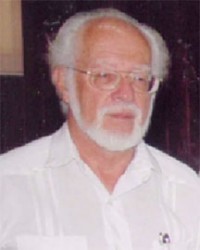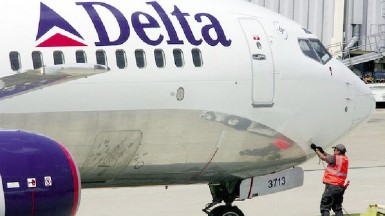Difficulties associated with concluding a deal with a brand name airline to fly to Guyana continues to be the single major barrier to the growth of Guyana’s tourism industry.
President of the Tourism and Hospitality Association of Guyana (THAG) Christopher ‘Kit’ Nascimento told Stabroek Business in an interview last Friday that the solution to the problem may well lie in the Government of Guyana concluding a minimum passenger payload agreement with a major international airline under which Guyana will have to meet the cost of a percentage of the vacant seats on the aircraft.
Nascimento told Stabroek Business that while the government has up until now been disinclined to sign such an agreement, other Caribbean countries had gone that route. “Barbados, particularly, has gone that route with all of the major airlines flying to that country,” Nascimento said. Asked whether it was THAG’s position that the government should seek to conclude such an agreement, Nascimento said the government should do, “what has to be done.”

Difficulties associated with wooing a major international to Guyana have surfaced ever since Delta Airlines discontinued its service in May last year after flying to Guyana for 10 years. “Until we are able to overcome that hurdle we are going to continue to have that barrier to the growth of our tourism industry in front of us. The fact that we don’t have a major international airline flying to Guyana means that Caribbean Airlines rules the roost in terms of our connections with North America and Europe. That means that they can set their own prices since there is no competition. It is a major problem,” Nascimento said.
He added that THAG speaks “constantly” with the government on what he described as “this fundamental issue,” though he said that the tourism umbrella body had, up until now, received no indication that government had changed its mind on the issue. Nascimento said “airlines across the Caribbean are now demanding that governments provide a minimum guarantee on a minimum passenger payload of around 80 per cent. Anything less than that and you compensate the airline.”
Nascimento said that while countries can negotiate with some of the airlines “part of that package means that you have to help with the marketing of the airline. Guyana’s official approach is that we are not doing that and I think that that is going to have to change if we are going to get a major airline to come to Guyana.”

And according to Nascimento the conclusion of such an agreement would provide evidence of the country’s confidence in its tourism product. “It has become the way of doing business in the region. An airline is in the business of filling seats. They are not going to come here if they don’t think they can fill up the airplane.”
Asked whether he felt Guyana could afford the cost of such an agreement, Nascimento said costs would depend on the volume of empty seats. He pointed out that since Delta Airlines had customarily flown with around an 80 per cent passenger payload it was unlikely that Guyana “would have to pay anything under an agreement with another airline.”
Meanwhile, THAG Vice President Nicole Correia told Stabroek Business that securing the services of a major international airline was only “part of the job” for Guyana. “Even if we get an airline there still has to be some kind of plan to fill those seats targeting particularly Guyanese in the diaspora and business travelers.”
Nascimento concurred that the absence of such a plan or the budget to support such a plan meant that the forward movement of the country’s tourism potential was being seriously retarded.









